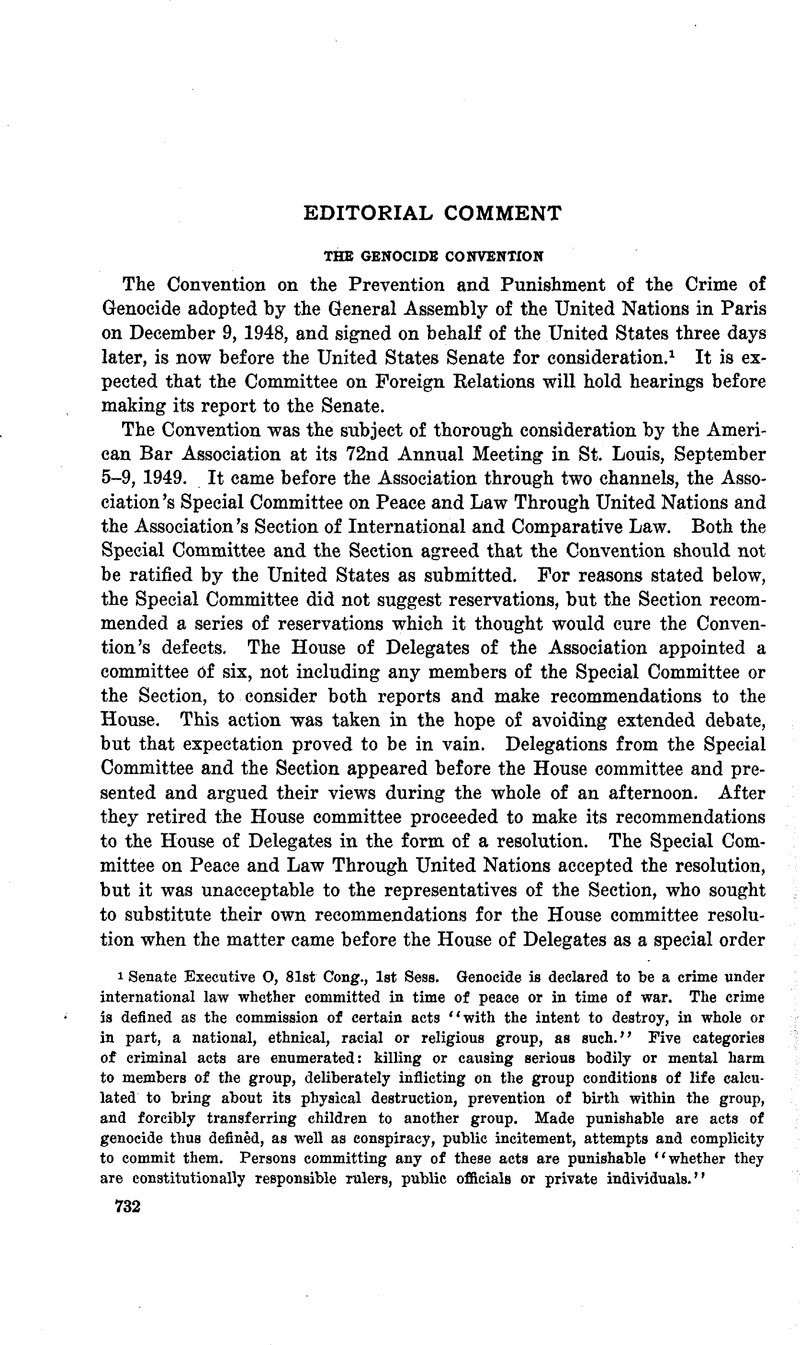Article contents
The Genocide Convention
Published online by Cambridge University Press: 20 April 2017
Abstract

- Type
- Editorial Comment
- Information
- Copyright
- Copyright © American Society of International Law 1949
References
1 Senate Executive O, 81st Cong., 1st Sess. Genocide is declared to be a crime under international law whether committed in time of peace or in time of war. The crime is defined as the commission of certain acts “with the intent to destroy, in whole or in part, a national, ethnical, racial or religious group, as such.” Five categories of criminal acts are enumerated: killing or causing serious bodily or mental harm to members of the group, deliberately inflicting on the group conditions of life calculated to bring about its physical destruction, prevention of birth within the group, and forcibly transferring children to another group. Made punishable are acts of genocide thus defined, as well as conspiracy, public incitement, attempts and complicity to commit them. Persons committing any of these acts are punishable “whether they are constitutionally responsible rulers, public officials or private individuals.”
2 The American Jewish League Against Communism recently sent a letter to the Secretary General of the United Nations documenting a previous charge that “400,000 Jews were deported from the Ukraine and White Russia to Archangel and Siberia, because they were considered too pro-democratic to be left on the Soviet borders in case of possible war.” (New York Times, Sept. 15, 1949, p. 24.)
3 252 U. S. 416.
4 Advisory Opinion No. 4, Tunis-Morocco Nationality Decrees. Hudson, World Court Reports, Vol. I, p. 145, at p. 156.
5 Address at Lenox, Mass., Aug. 12, 1949. Department of State Bulletin, Vol. XXI, No. 530 (Aug. 29, 1949), p. 283.
6 The Commercial Treaty of 1832 between the United States and Russia was terminated by the United States on Jan. 1, 1913, following a resolution adopted by the House of Representatives on Dec. 13, 1912, that Russia had violated the treaty by refusing to honor passports duly issued to American citizens of the Jewish race or religion. The House resolution declared: “That the people of the United States assert as a fundamental principle that the rights of its citizens shall not be impaired at home or abroad because of race or religion; that the Government of the United States concludes its treaties for the equal protection of all classes of its citizens, without regard to race or religion; that the Government of the United States will not be a party to any treaty which discriminates between American citizens on the ground of race or religion.” For further information on this incident, see this Journal, Vol. 6 (1912), p. 186.
7 See American Bar Association Journal, August, 1949, p. 625.
- 4
- Cited by


